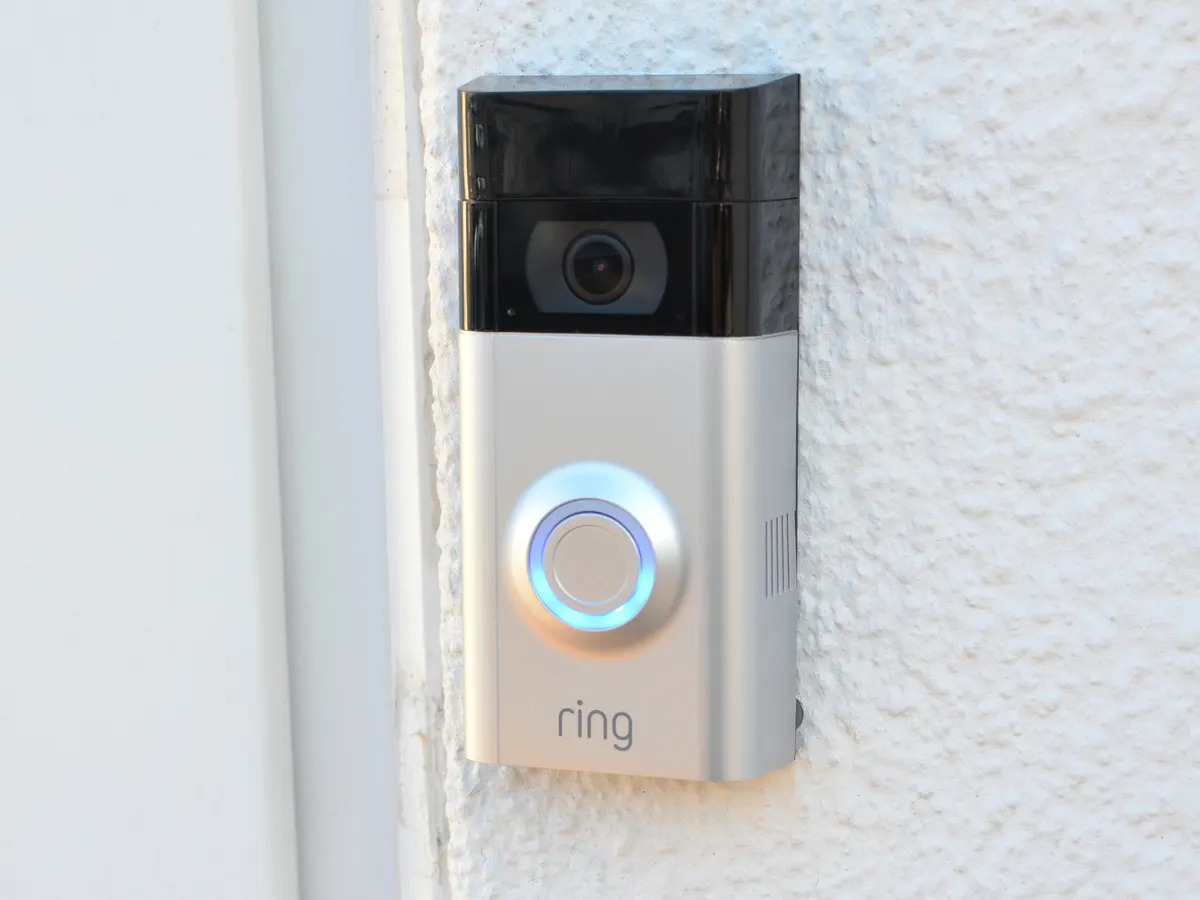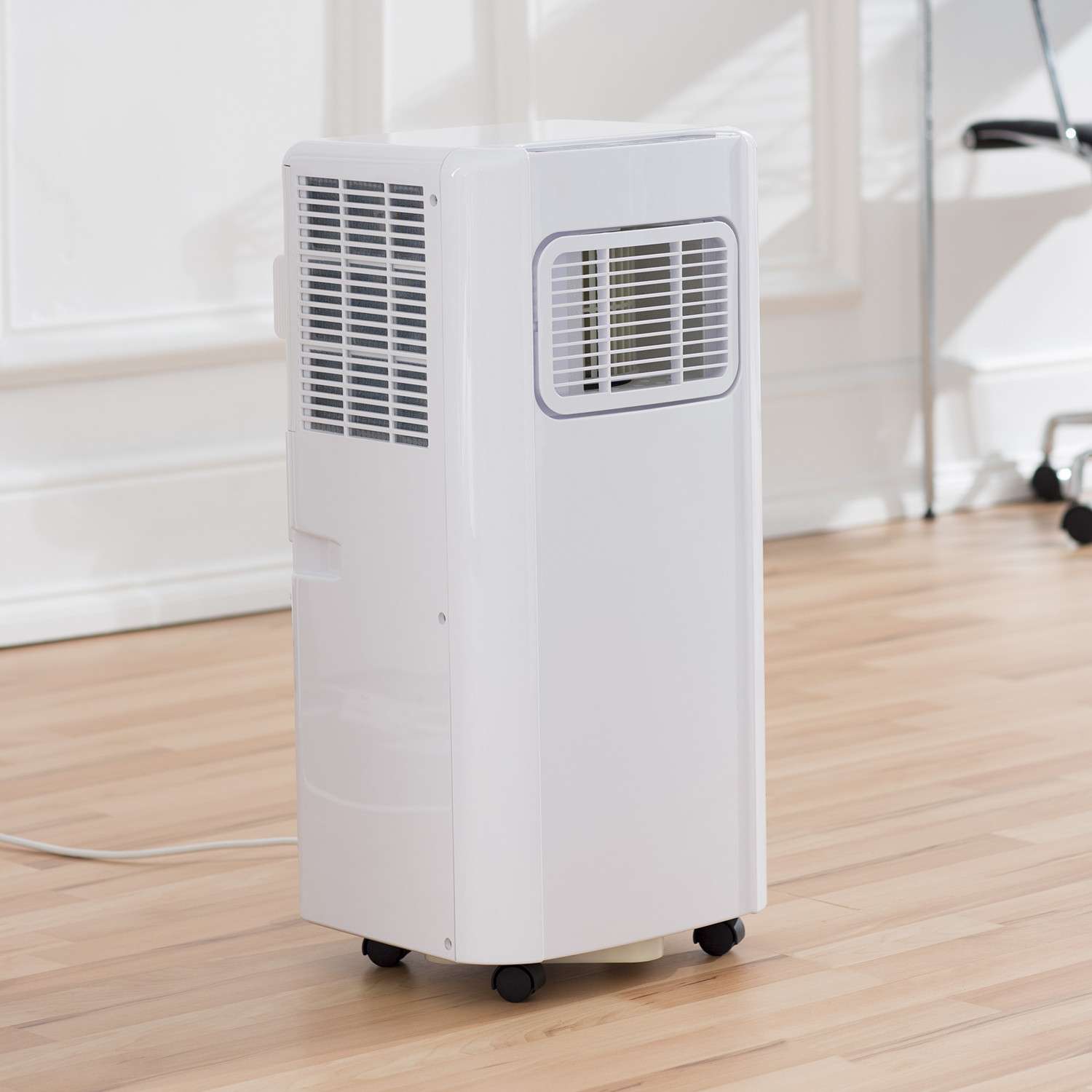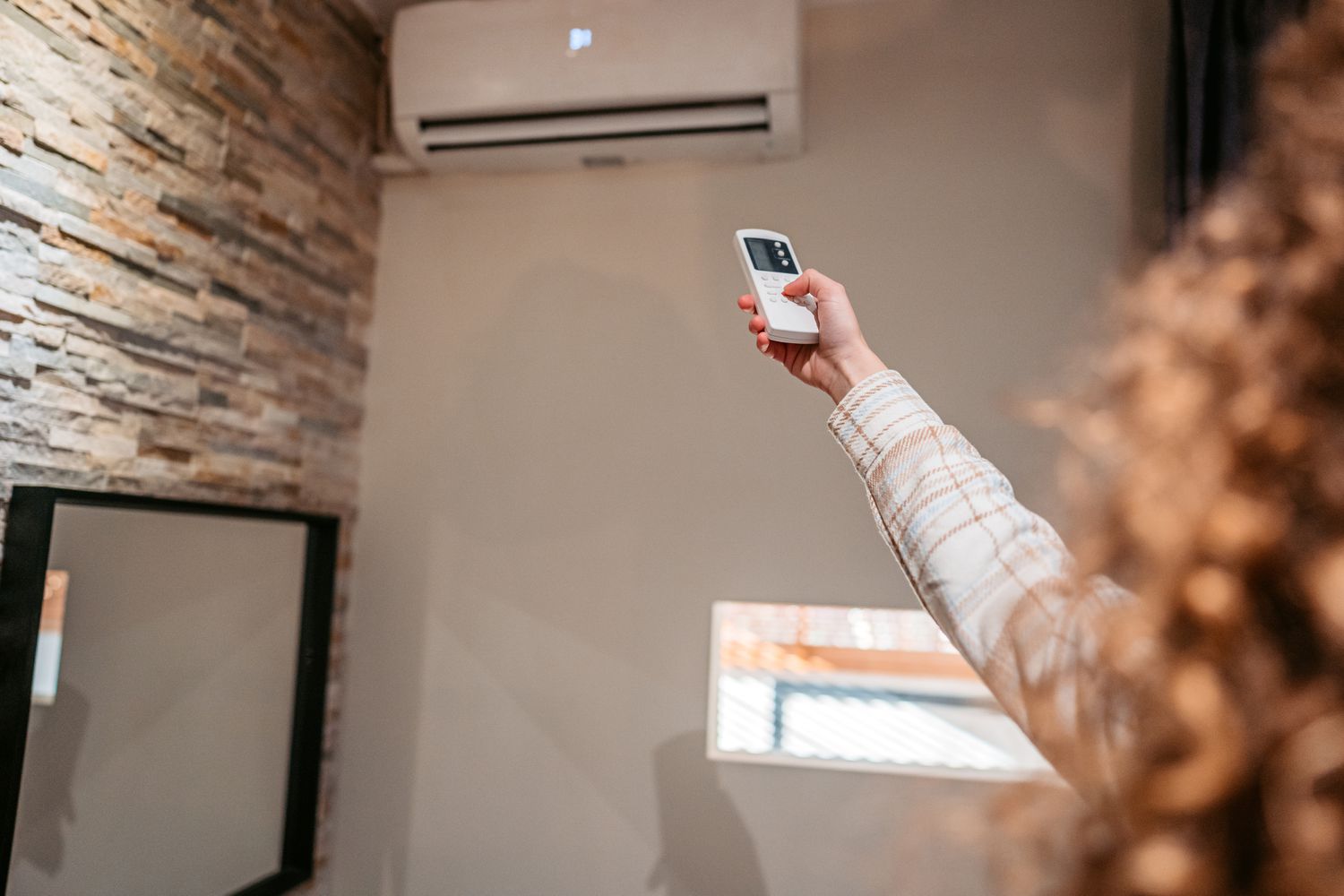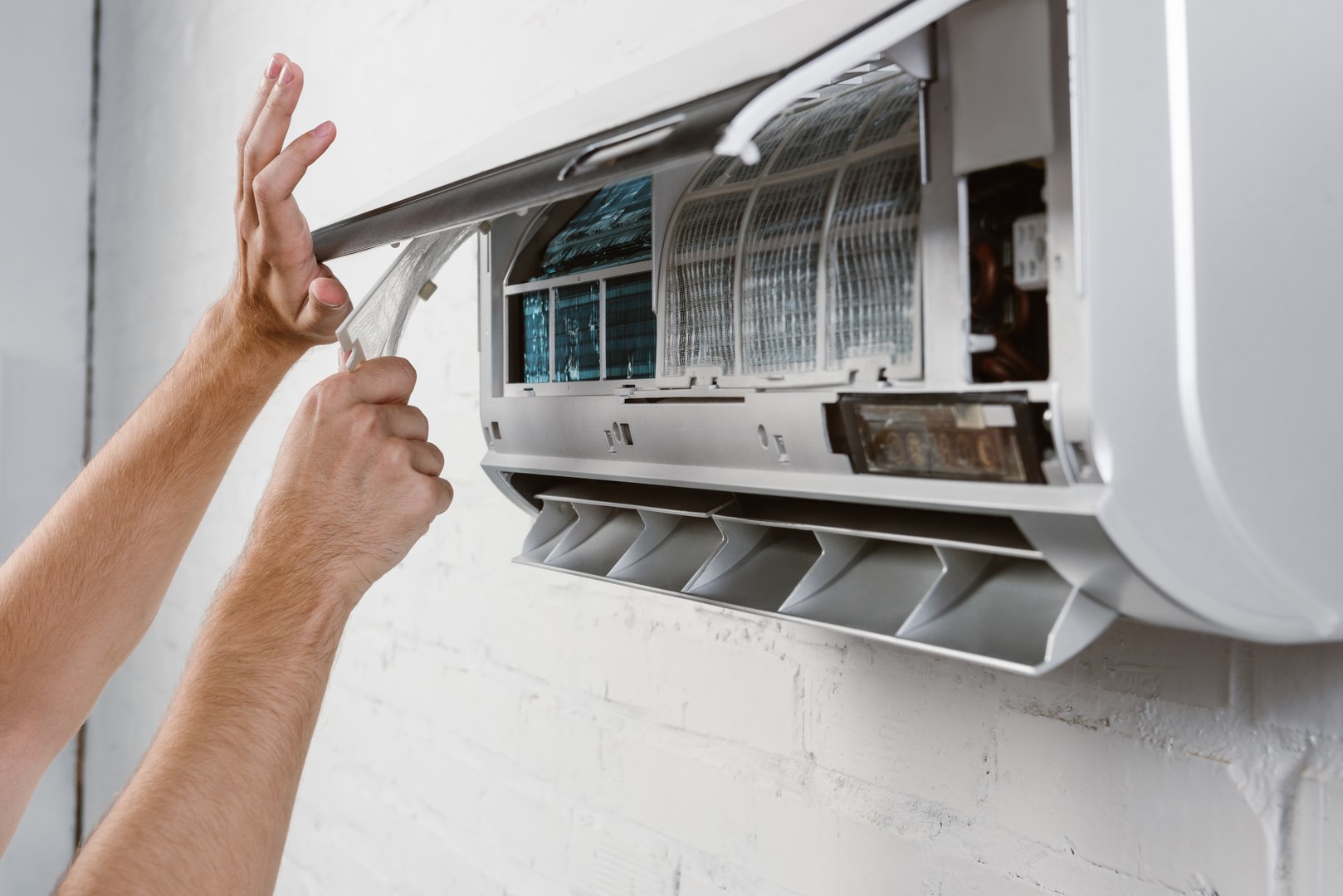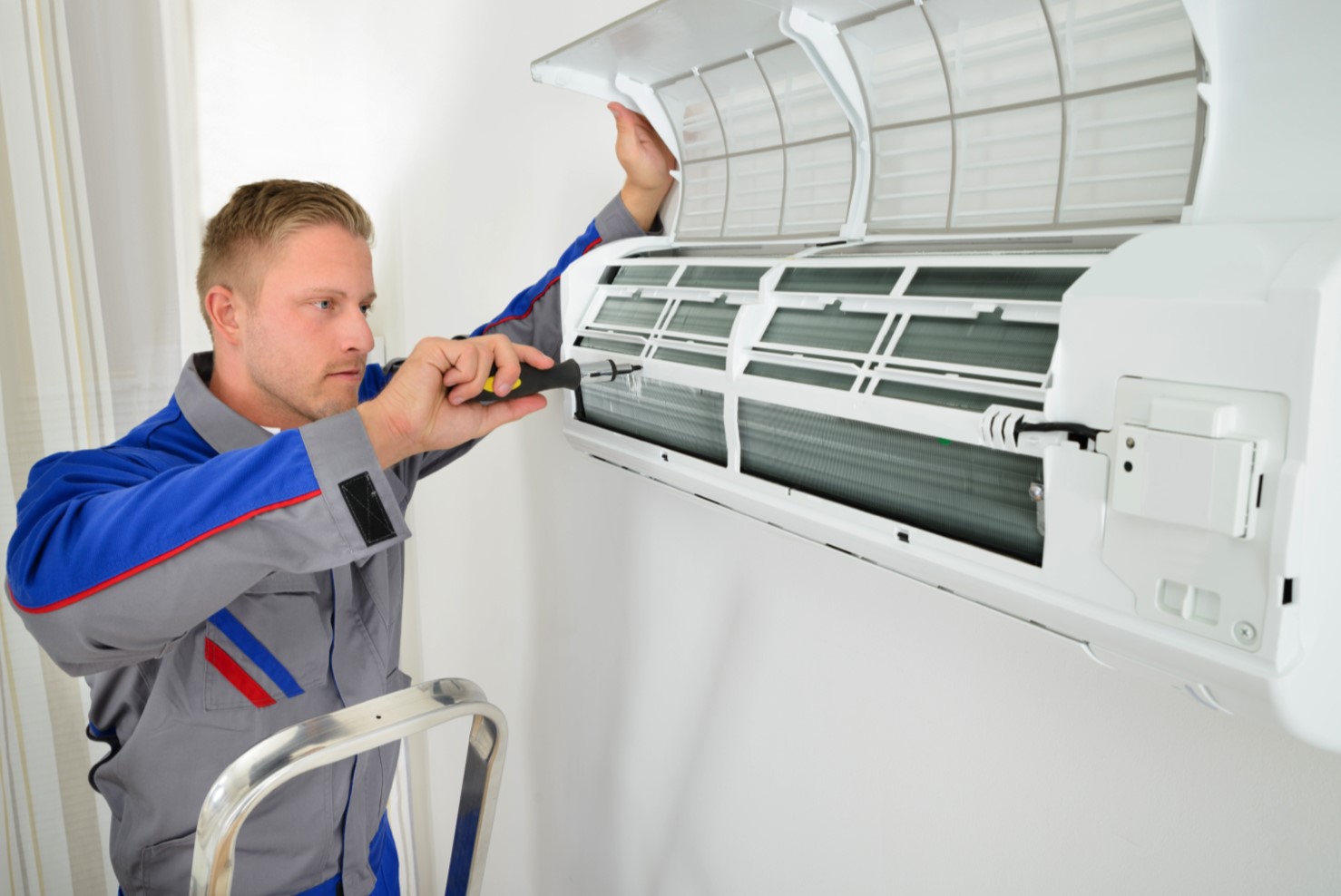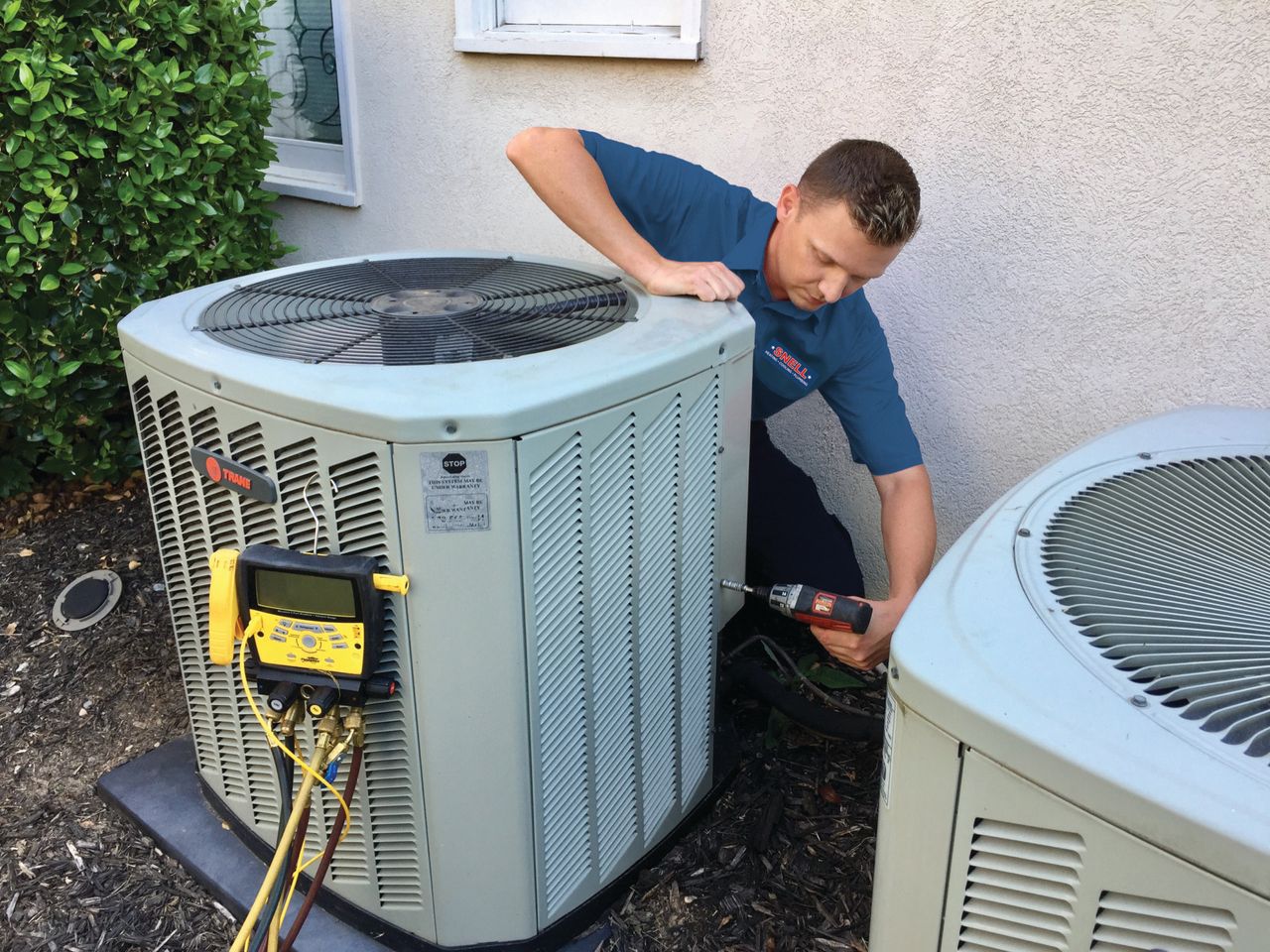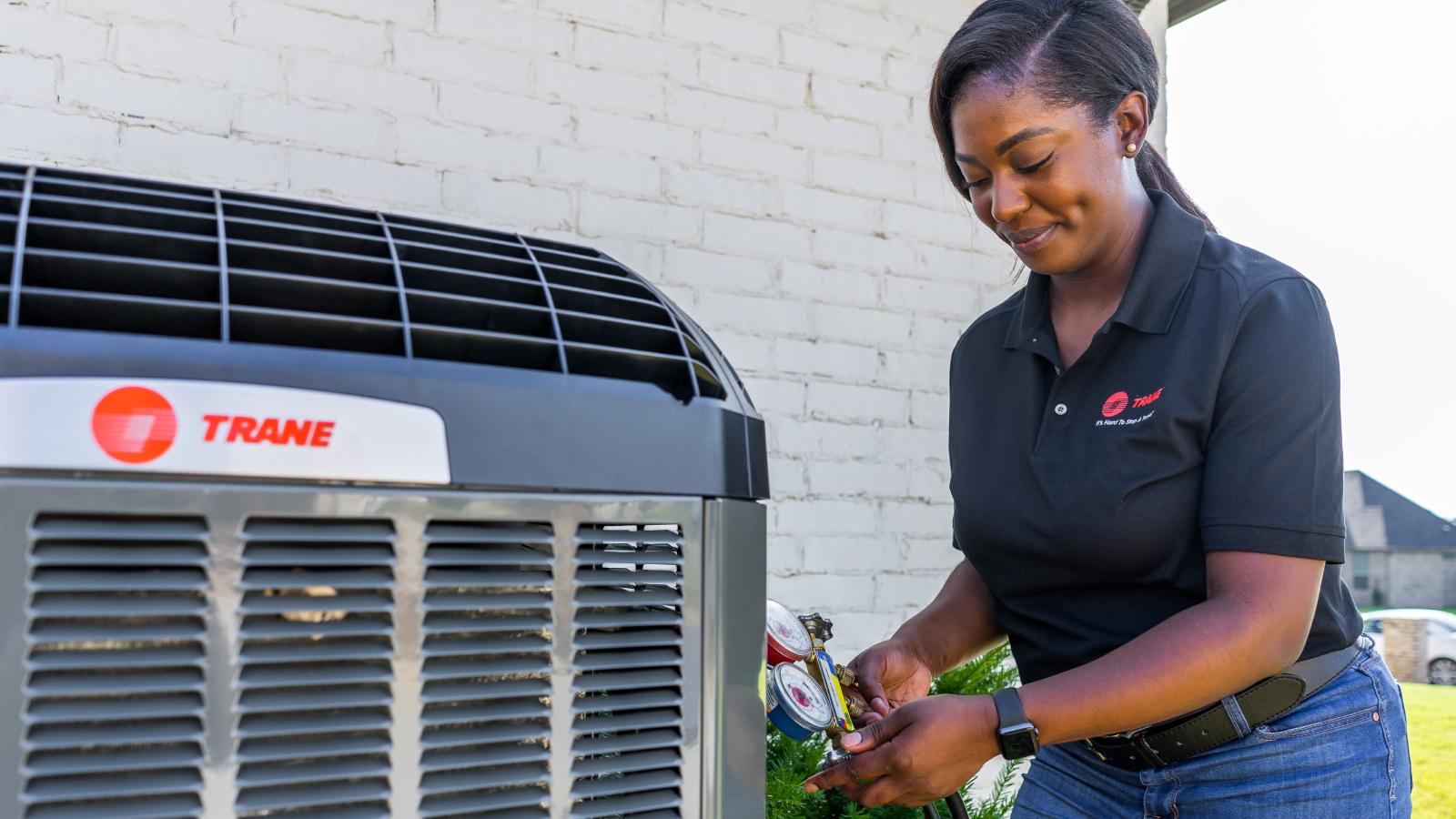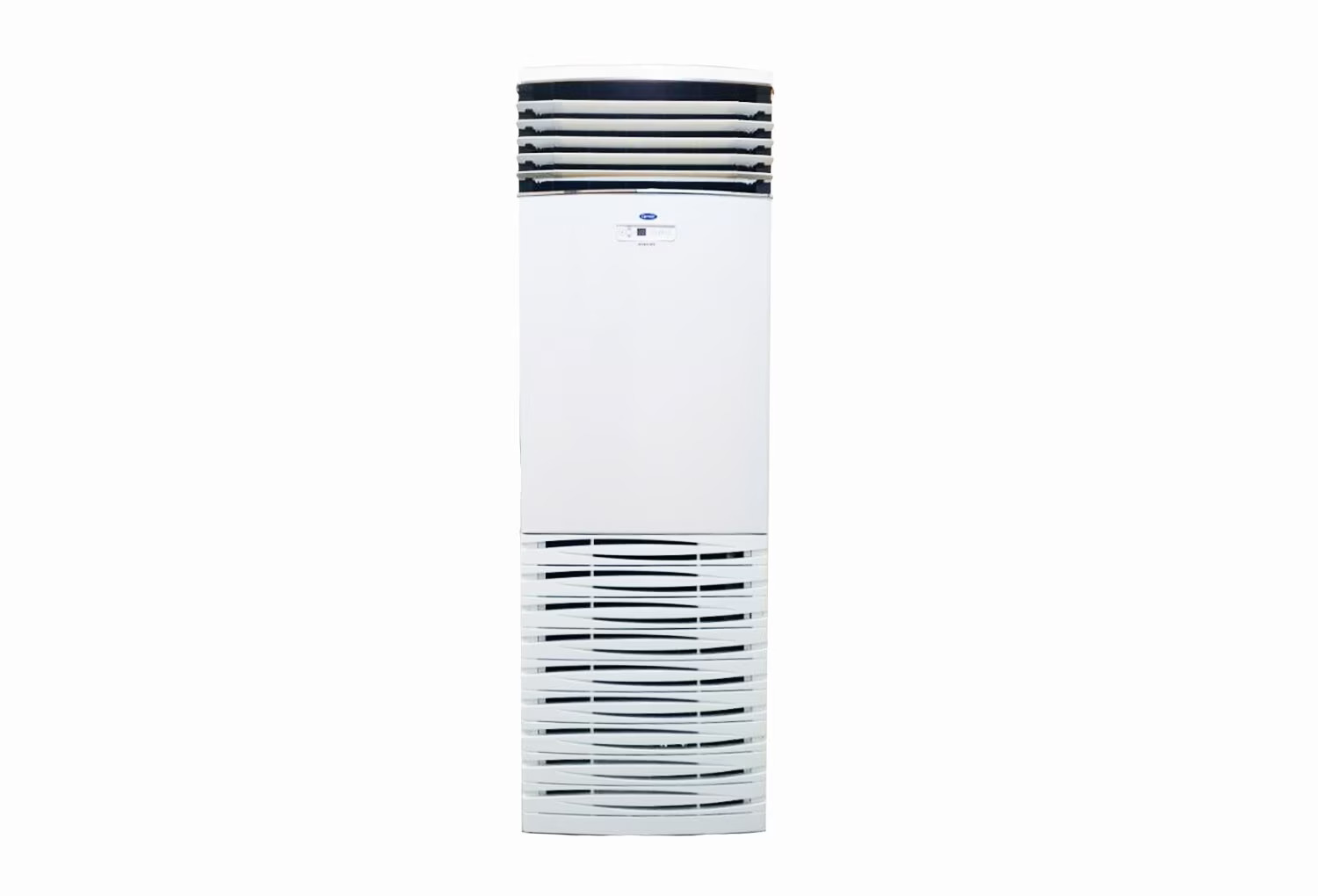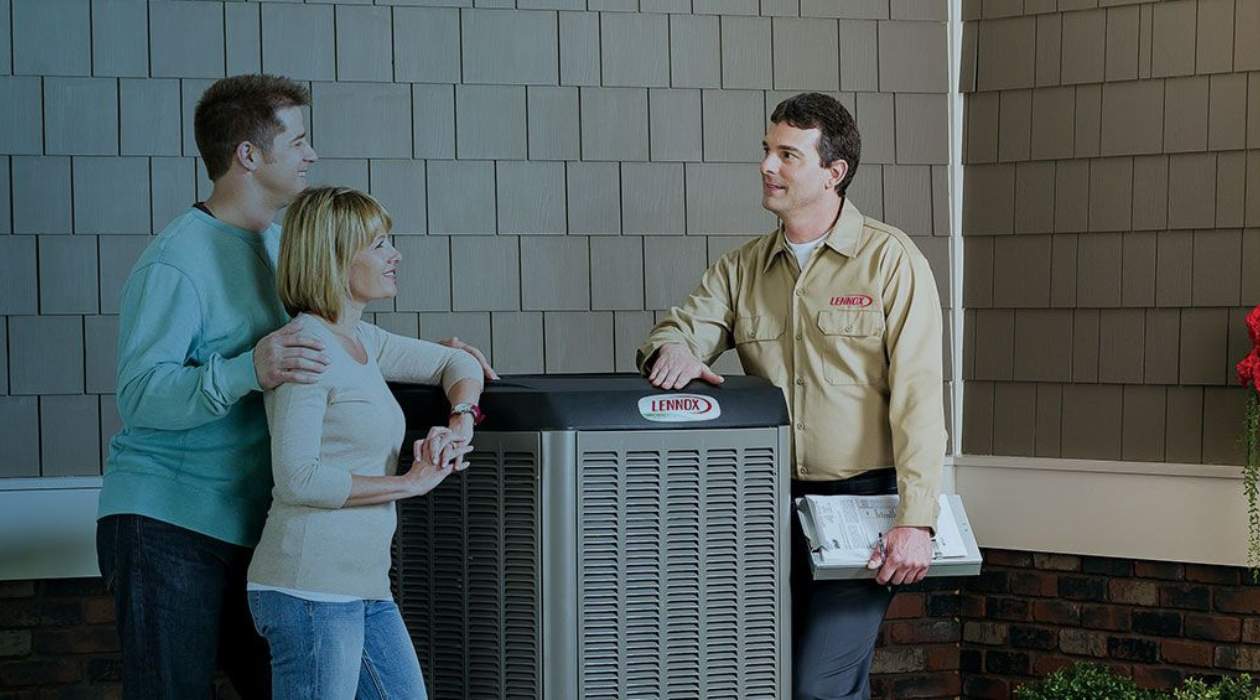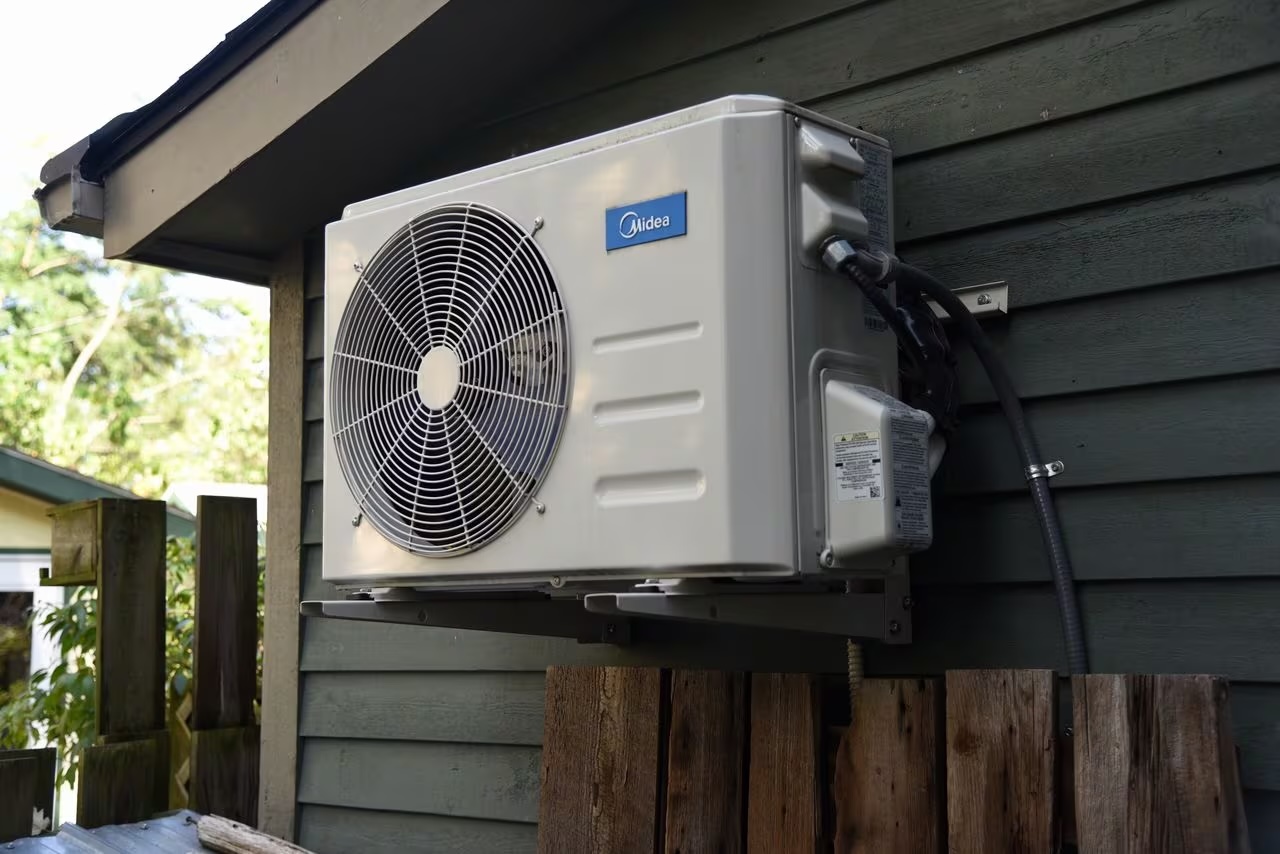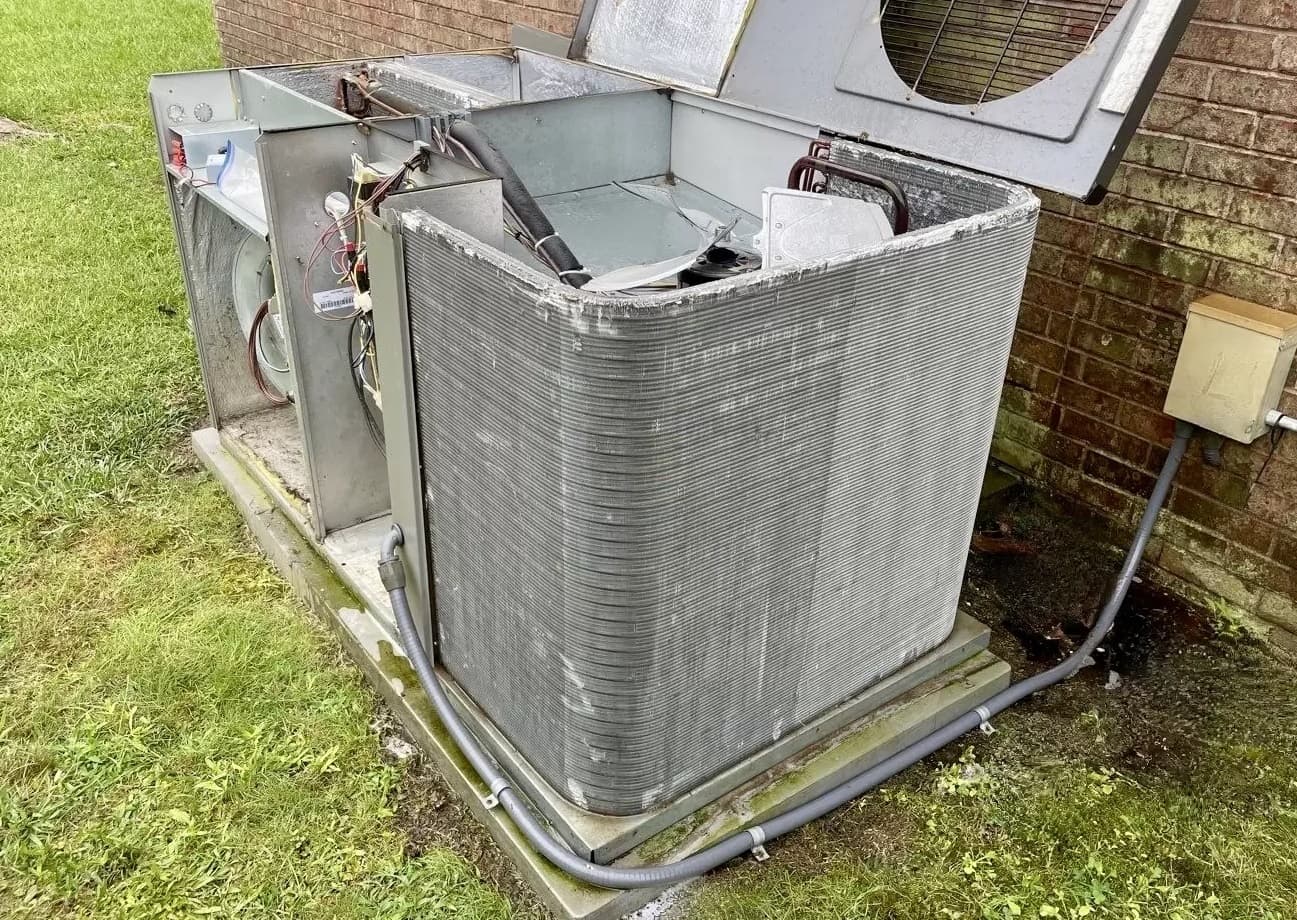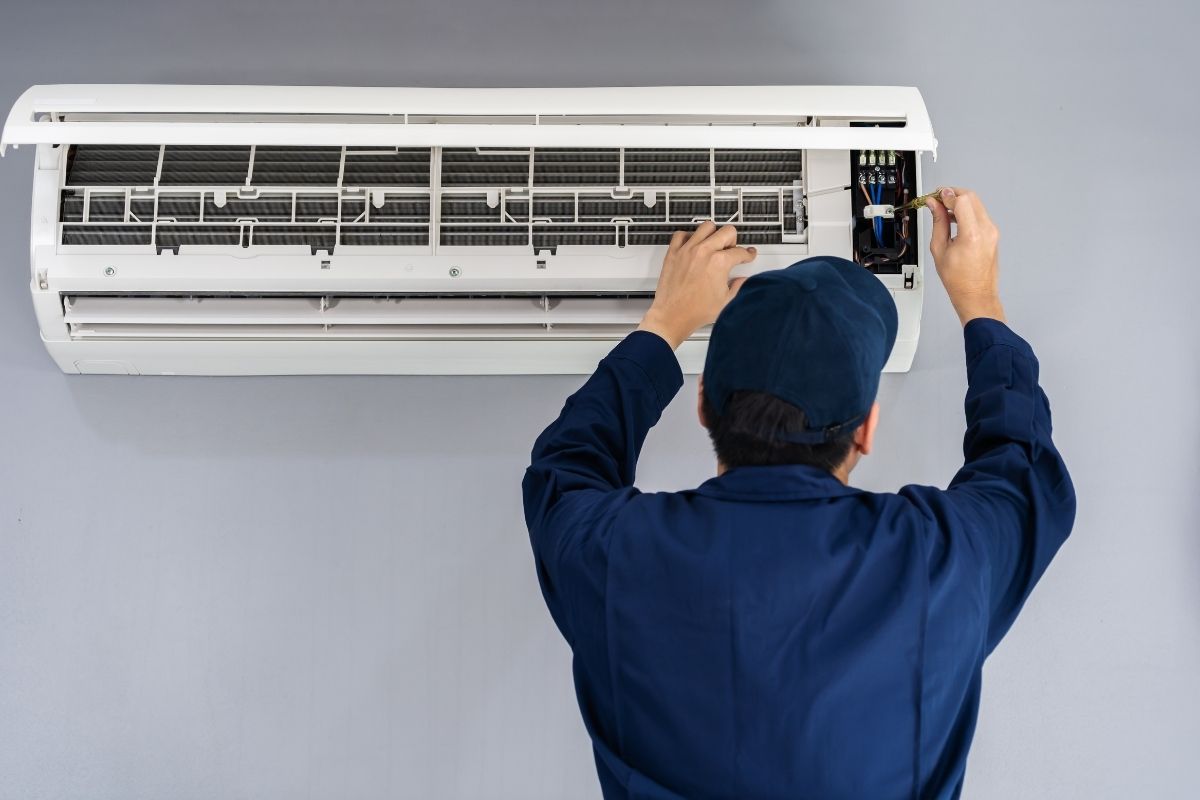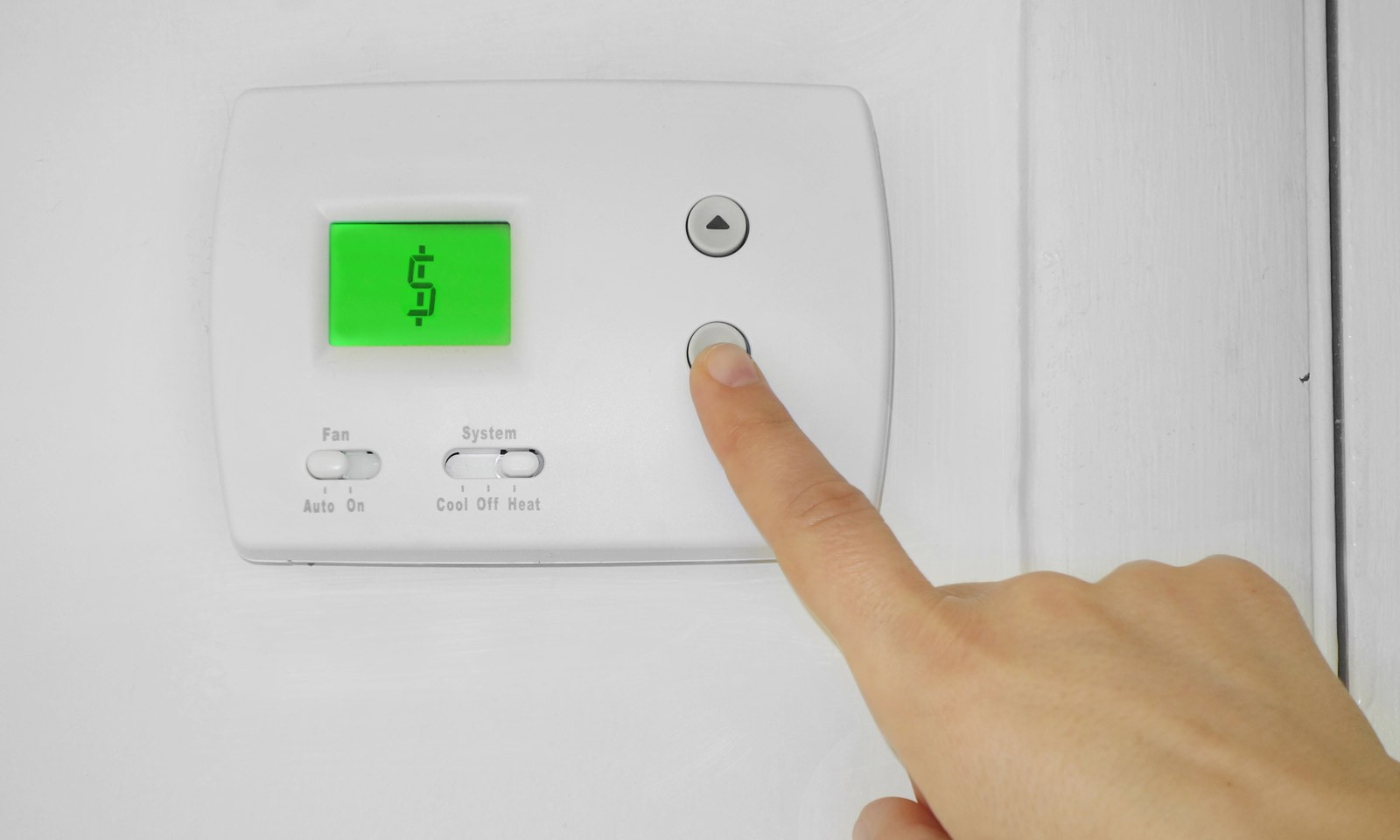Home>Home Maintenance>How Much Does A Window Air Conditioner Cost To Run Per Month
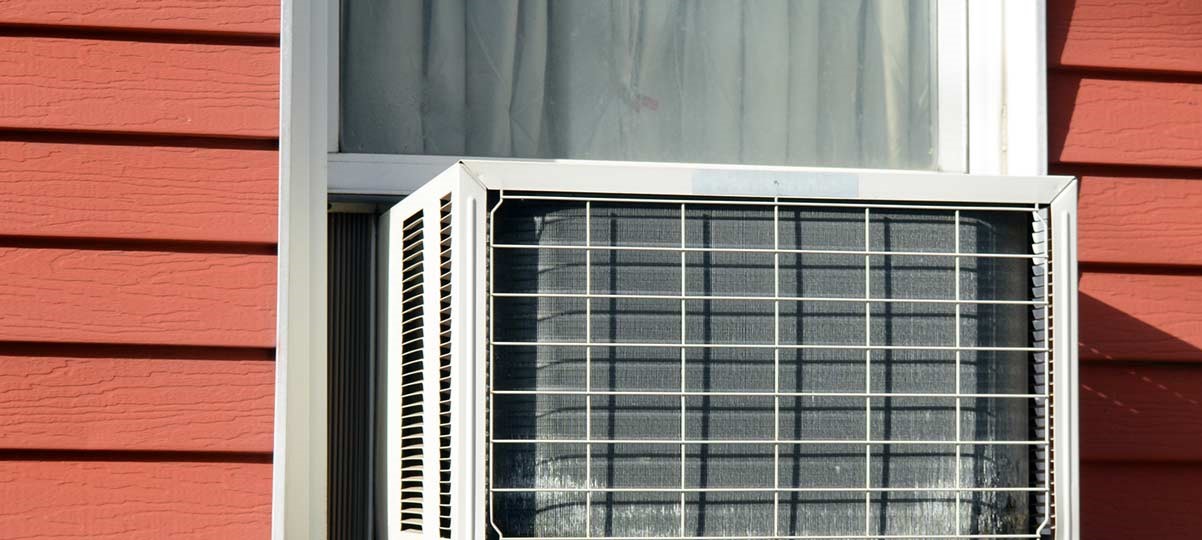

Home Maintenance
How Much Does A Window Air Conditioner Cost To Run Per Month
Modified: March 7, 2024
Find out how much it costs to run a window air conditioner per month. Get expert advice on home maintenance and save money on energy bills.
(Many of the links in this article redirect to a specific reviewed product. Your purchase of these products through affiliate links helps to generate commission for Storables.com, at no extra cost. Learn more)
Introduction
Welcome to our comprehensive guide on how much it costs to run a window air conditioner per month. Window air conditioners are a popular choice for homeowners who want to efficiently cool a specific room or area in their homes. While they can provide much-needed relief from the sweltering heat, it’s important to understand the energy consumption and associated costs that come with operating these cooling units.
In this article, we will explore the factors that can affect the energy consumption of a window air conditioner, estimate the average monthly energy usage, and calculate the cost of running this type of cooling system. Additionally, we will discuss the various factors that can impact the cost of running an air conditioner and provide useful tips for reducing energy costs while still keeping your space comfortably cool.
By the end of this guide, you will have a better understanding of the financial implications of running a window air conditioner and be armed with practical tips to help you make informed decisions about your home cooling needs. So, let’s dive in and explore how much it really costs to run a window air conditioner per month.
Key Takeaways:
- Running a window air conditioner can be costly. Factors like BTU rating, EER, and usage patterns affect energy consumption. Proper maintenance and energy-saving habits can help reduce cooling costs.
- Consider energy-efficient upgrades and utilize natural ventilation to lower air conditioner energy costs. Simple steps like sealing air leaks and setting the thermostat properly can make a big difference.
Factors Affecting Air Conditioner Energy Consumption
Several factors can impact the energy consumption of a window air conditioner. Understanding these factors can help you determine how much energy your unit is likely to consume and, consequently, the associated costs. Here are the key factors:
- BTU Rating: The cooling capacity of an air conditioner is measured in British Thermal Units (BTUs). Higher BTU ratings indicate more cooling power. However, units with higher BTU ratings tend to consume more energy. It’s important to choose an air conditioner with an appropriate BTU rating for the size of the room or area you want to cool. Oversized units can lead to excessive energy consumption.
- Energy Efficiency Ratio (EER): The EER of an air conditioner measures its energy efficiency. A higher EER means the unit is more efficient, using less energy to deliver the same level of cooling. When purchasing a window air conditioner, look for models with higher EER ratings for cost-effective operation.
- Usage Patterns: How frequently and for how long you use the air conditioner affects energy consumption. If you run the unit for extended periods or use it consistently throughout the day, your energy bills will be higher. Consider using programmable thermostats or timers to control the operation of your air conditioner and optimize energy usage.
- Temperature Settings: The temperature at which you set your air conditioner can greatly impact energy consumption. Lower temperature settings require the unit to work harder and consume more energy. Aim to set the thermostat at a comfortable temperature that is not excessively cool.
- Insulation and Air Leakage: The insulation of your home and the presence of air leaks can affect the energy efficiency of your air conditioner. Poor insulation or gaps in windows and doors allow cool air to escape and hot air to enter, causing the air conditioner to work harder. Ensure proper insulation and seal any air leaks to maximize energy efficiency.
- External Factors: Environmental factors such as the climate, humidity levels, and the location of your air conditioner can also impact energy consumption. In hot and humid climates, air conditioners may need to work harder to maintain cool temperatures. If your air conditioner is exposed to direct sunlight, it may need to work harder as well. Consider shading the unit to reduce its energy usage.
By considering these factors, you can assess the energy requirements of your window air conditioner and make informed decisions to optimize efficiency while keeping energy costs under control.
Estimating Average Monthly Energy Usage
Estimating the average monthly energy usage of a window air conditioner involves considering the capacity of the unit, the number of hours it runs per day, and the energy efficiency rating. While individual energy consumption may vary, we can provide a general estimation to give you an idea of what to expect.
To start, you’ll need to know the BTU rating and the EER of your air conditioner. The BTU rating determines the cooling capacity, while the EER indicates its energy efficiency. Look for these specifications in the manufacturer’s documentation or on the unit itself.
Consider the number of hours per day that your air conditioner runs during the hotter months. This information will give you the daily usage in hours. For example, if your air conditioner runs for 8 hours per day, multiply this by 30 to get the monthly usage in hours, assuming you run the unit consistently throughout the month.
Next, calculate the wattage by multiplying the BTU rating by the EER. Divide the wattage by 1000 to convert it to kilowatts (kW). Multiply the kW by the monthly usage in hours to get the estimated total kilowatt-hours (kWh) consumed per month.
Finally, consider the cost of electricity per kilowatt-hour in your area. This information can typically be found on your utility bill. Multiply the cost per kWh by the estimated monthly usage in kWh to determine the approximate monthly energy cost of running your window air conditioner.
It’s important to note that this estimation is only a rough guideline, as actual energy consumption may vary based on usage patterns, temperature settings, insulation, and other factors discussed earlier. Additionally, energy rates can differ between regions or fluctuate over time, so it’s crucial to refer to your specific electricity costs for accurate calculations.
By estimating your average monthly energy usage, you can anticipate the electricity costs associated with running your window air conditioner and plan accordingly.
Calculating the Cost of Running a Window Air Conditioner
Calculating the cost of running a window air conditioner involves considering the energy consumption of the unit and the cost of electricity in your area. Following a simple formula, you can determine the approximate amount you’ll be spending on electricity to keep your space cool.
First, you’ll need to gather some information:
- The wattage or power consumption of your air conditioner, which can usually be found in the manufacturer’s documentation or on the unit itself.
- The number of hours your air conditioner runs per day.
- The cost of electricity per kilowatt-hour (kWh) in your area, which can typically be found on your utility bill.
To calculate the cost of running your air conditioner per day, multiply the wattage by the number of hours it runs. Divide the result by 1000 to convert it to kilowatts. This will give you the kilowatt-hour (kWh) usage per day.
To determine the cost of running your air conditioner per month, multiply the daily kWh usage by the number of days in a month. This will give you the estimated monthly kWh usage.
Finally, multiply the estimated monthly kWh usage by the cost per kWh in your area. The result will be the approximate monthly cost of running your window air conditioner.
For example, let’s say your air conditioner has a power consumption of 800 watts, runs for 8 hours a day, and the cost of electricity is $0.15 per kWh. Using the formula, you can calculate the cost as follows:
800 watts x 8 hours = 6,400 watt-hours
6,400 watt-hours / 1000 = 6.4 kWh per day
6.4 kWh per day x 30 days = 192 kWh per month
192 kWh per month x $0.15 per kWh = $28.80
Therefore, in this example, the estimated monthly cost of running the air conditioner is approximately $28.80.
Keep in mind that this is just an estimation, as actual energy consumption and electricity rates can vary. However, by using this simple calculation, you can get a good idea of the cost associated with operating your window air conditioner.
To estimate the cost of running a window air conditioner per month, multiply the unit’s wattage by the number of hours it runs each day, then divide by 1000 to get the daily kilowatt-hour usage. Multiply this by your electricity rate to get the monthly cost.
Factors That Impact the Cost of Running an Air Conditioner
Several factors can affect the cost of running an air conditioner, beyond just the energy consumption of the unit. Understanding these factors can help you identify areas where you can make adjustments to optimize energy efficiency and reduce your cooling costs. Here are the key factors to consider:
- Energy Efficiency: The energy efficiency rating of your air conditioner plays a significant role in determining its operating cost. Units with higher energy efficiency ratings use less energy to produce the same cooling effect. When purchasing an air conditioner, look for models with high Energy Efficiency Ratio (EER) or Seasonal Energy Efficiency Ratio (SEER) ratings to ensure more cost-effective operation.
- Temperature Settings: The temperature at which you set your air conditioner can impact the cost of running it. Lowering the temperature requires the unit to work harder and consume more energy. Consider setting the thermostat at a slightly higher temperature to reduce energy usage without sacrificing comfort.
- Climate and Temperature: Climate plays a significant role in air conditioner energy consumption and, consequently, the associated costs. In hotter climates, air conditioners often need to run for longer periods and work harder to maintain cool temperatures. If you live in a region with extreme temperatures, your cooling costs may be higher compared to areas with more moderate climates.
- Insulation and Air Leakage: The insulation of your home and the presence of air leaks can impact the efficiency of your air conditioner. Improper insulation and air leaks allow cool air to escape and hot air to enter your home, forcing the air conditioner to work harder and consume more energy. Ensure your home is properly insulated and seal any air leaks to maximize energy efficiency.
- Air Filter Maintenance: Regularly cleaning or replacing the air filter in your air conditioner is crucial for optimal performance and energy efficiency. A dirty or clogged filter restricts airflow, forcing the unit to work harder to cool your space and consuming more energy in the process. Check and clean the filter monthly, or as recommended by the manufacturer, to ensure efficient operation.
- Size and Capacity: Choosing the right size and capacity of an air conditioner is essential for efficient cooling and cost savings. An undersized unit may struggle to cool your space, leading to extended operation and increased energy usage. On the other hand, an oversized unit may cycle on and off frequently, wasting energy. Ensure you choose an appropriately sized air conditioner for your room or area to optimize efficiency.
- Usage Patterns and Lifestyle: How you use your air conditioner and your lifestyle habits can impact energy consumption and costs. Turning off the air conditioner when you’re not at home, using programmable thermostats or timers, and utilizing natural ventilation can help reduce energy usage. Additionally, practicing energy-saving habits like keeping doors and windows closed, using ceiling fans to enhance airflow, and shading windows from direct sunlight can all contribute to lower cooling costs.
By considering these factors and making adjustments where possible, you can minimize the cost of running your air conditioner while maintaining a comfortable indoor environment.
Tips for Reducing Air Conditioner Energy Costs
Reducing air conditioner energy costs not only helps save money but also promotes environmental sustainability. With a few simple adjustments and habits, you can maximize energy efficiency and keep your space comfortably cool. Here are some tips to help you lower your air conditioner energy costs:
- Set the Thermostat Properly: Optimize your thermostat settings by setting it at a slightly higher temperature than your usual preference. Each degree lower adds to energy consumption and costs. Consider using programmable thermostats to automatically adjust temperatures when you’re away from home.
- Maximize Natural Ventilation: Utilize natural ventilation methods whenever possible. Open windows and use fans to circulate fresh air and create a breeze. This can help reduce reliance on the air conditioner during mild weather conditions.
- Seal Air Leaks: Inspect your home for air leaks around windows, doors, and other openings. Seal any gaps or cracks with weatherstripping or caulk to prevent cool air from escaping and warm air from entering. This will improve the efficiency of your air conditioner.
- Keep Doors and Windows Closed: Make sure doors and windows are closed when the air conditioner is running. This prevents the cool air from escaping and keeps the hot air outside, reducing the workload on your air conditioner.
- Utilize Ceiling Fans: Use ceiling fans in conjunction with your air conditioner to enhance air circulation. The fans can help distribute cool air more effectively, allowing you to raise the thermostat a few degrees without sacrificing comfort.
- Maintain Air Filter: Clean or replace the air filter regularly to keep your air conditioner running efficiently. A dirty filter restricts airflow, forcing the unit to work harder and consume more energy.
- Shade Your Windows: Use blinds, curtains, or window films to block out direct sunlight. This reduces heat gain and keeps your space cooler, reducing the need for excessive air conditioning usage.
- Use Energy-Saving Mode: If your air conditioner has an energy-saving mode, utilize it. This setting adjusts the cooling output to optimize energy efficiency without compromising comfort.
- Maintain Air Conditioner Properly: Schedule regular maintenance for your air conditioner to keep it running smoothly and efficiently. This includes cleaning coils, checking refrigerant levels, and ensuring proper airflow.
- Consider Energy-Efficient Upgrades: If your air conditioner is outdated, upgrading to a more energy-efficient model can lead to significant energy savings in the long run. Look for units with high SEER (Seasonal Energy Efficiency Ratio) ratings.
By implementing these tips, you can reduce your air conditioner’s energy consumption, lower your cooling costs, and create a more sustainable and comfortable living environment.
Conclusion
Understanding the factors that affect the cost of running a window air conditioner is crucial for managing energy consumption and keeping cooling costs in check. By considering the BTU rating, EER, usage patterns, temperature settings, insulation, and external factors, you can estimate the average monthly energy usage and calculate the cost of operating your air conditioner.
Factors such as energy efficiency, insulation, air leakage, and air filter maintenance also play a significant role in determining the cost of running an air conditioner. By optimizing these factors and adopting energy-saving habits, you can further reduce energy consumption and lower your cooling costs.
Remember to set your thermostat properly, utilize natural ventilation, seal air leaks, keep doors and windows closed, utilize ceiling fans, and properly maintain your air conditioner. These simple steps can go a long way in maximizing energy efficiency and reducing your carbon footprint.
Additionally, consider the potential benefits of upgrading to a more energy-efficient air conditioner model. Though it may require an initial investment, the long-term energy savings can make it a worthwhile endeavor.
By taking these factors and tips into account, you can make informed decisions about your air conditioning usage, minimize energy consumption, and ultimately save money while keeping your space comfortably cool. So, stay cool and energy-conscious as you enjoy the benefits of your window air conditioner!
Frequently Asked Questions about How Much Does A Window Air Conditioner Cost To Run Per Month
Was this page helpful?
At Storables.com, we guarantee accurate and reliable information. Our content, validated by Expert Board Contributors, is crafted following stringent Editorial Policies. We're committed to providing you with well-researched, expert-backed insights for all your informational needs.
